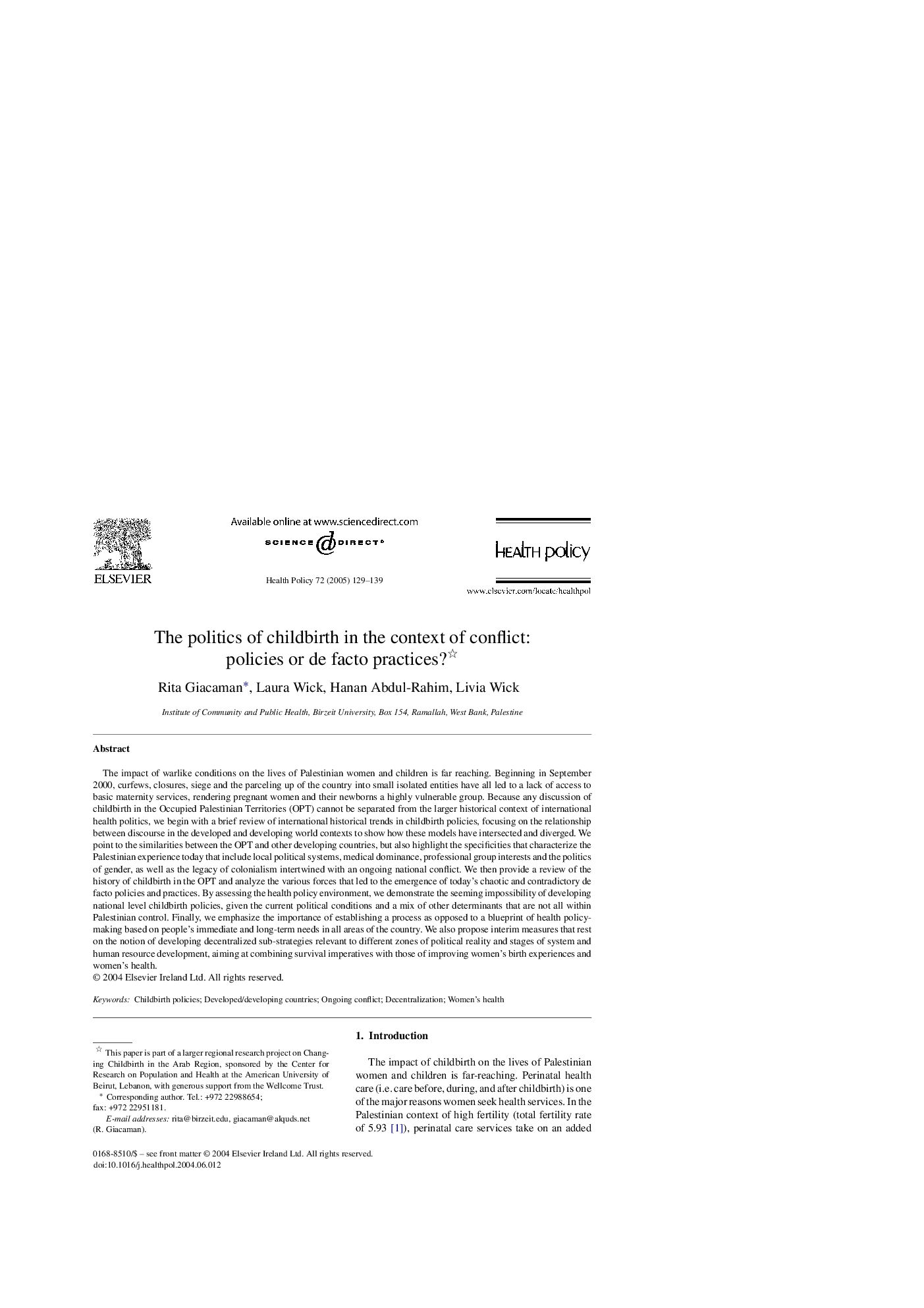| کد مقاله | کد نشریه | سال انتشار | مقاله انگلیسی | نسخه تمام متن |
|---|---|---|---|---|
| 9383016 | 1279108 | 2005 | 11 صفحه PDF | دانلود رایگان |
عنوان انگلیسی مقاله ISI
The politics of childbirth in the context of conflict: policies or de facto practices?
دانلود مقاله + سفارش ترجمه
دانلود مقاله ISI انگلیسی
رایگان برای ایرانیان
موضوعات مرتبط
علوم پزشکی و سلامت
پزشکی و دندانپزشکی
سیاست های بهداشت و سلامت عمومی
پیش نمایش صفحه اول مقاله

چکیده انگلیسی
The impact of warlike conditions on the lives of Palestinian women and children is far reaching. Beginning in September 2000, curfews, closures, siege and the parceling up of the country into small isolated entities have all led to a lack of access to basic maternity services, rendering pregnant women and their newborns a highly vulnerable group. Because any discussion of childbirth in the Occupied Palestinian Territories (OPT) cannot be separated from the larger historical context of international health politics, we begin with a brief review of international historical trends in childbirth policies, focusing on the relationship between discourse in the developed and developing world contexts to show how these models have intersected and diverged. We point to the similarities between the OPT and other developing countries, but also highlight the specificities that characterize the Palestinian experience today that include local political systems, medical dominance, professional group interests and the politics of gender, as well as the legacy of colonialism intertwined with an ongoing national conflict. We then provide a review of the history of childbirth in the OPT and analyze the various forces that led to the emergence of today's chaotic and contradictory de facto policies and practices. By assessing the health policy environment, we demonstrate the seeming impossibility of developing national level childbirth policies, given the current political conditions and a mix of other determinants that are not all within Palestinian control. Finally, we emphasize the importance of establishing a process as opposed to a blueprint of health policy-making based on people's immediate and long-term needs in all areas of the country. We also propose interim measures that rest on the notion of developing decentralized sub-strategies relevant to different zones of political reality and stages of system and human resource development, aiming at combining survival imperatives with those of improving women's birth experiences and women's health.
ناشر
Database: Elsevier - ScienceDirect (ساینس دایرکت)
Journal: Health Policy - Volume 72, Issue 2, May 2005, Pages 129-139
Journal: Health Policy - Volume 72, Issue 2, May 2005, Pages 129-139
نویسندگان
Rita Giacaman, Laura Wick, Hanan Abdul-Rahim, Livia Wick,